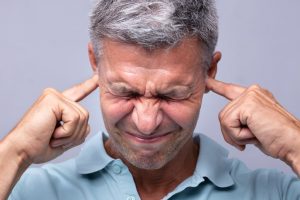 Many of us live in highly populated areas, which means there is plenty of noise. From flying airplanes and traffic to even emergency vehicles and outdoor concerts, there are endless sources of loud noise that occur around us daily. Really, unless you live in complete isolation in the middle of nowhere, there is no escaping loud environmental noises.
Many of us live in highly populated areas, which means there is plenty of noise. From flying airplanes and traffic to even emergency vehicles and outdoor concerts, there are endless sources of loud noise that occur around us daily. Really, unless you live in complete isolation in the middle of nowhere, there is no escaping loud environmental noises.
The World Health Organization has described environmental noise as an “underestimated threat.” In America alone, one in four adults show signs of noise-induced hearing loss. Hearing loss from all causes is the third most common chronic condition after diabetes and cancer.
Advertisement
Unfortunately, hearing loss is irreversible, so once the damage has been done, there is little you can do to improve it. Unlike improving your heart health or managing diabetes, which can be done through many lifestyle changes, there is no such thing for already done hearing loss, only preventative measures.
We are born with around 16,000 tiny hair cells in our ears, which work to send signals to the brain and allows us to hear. Through exposure to loud noise, these hair cells become damaged, which can disrupt the signals to the brain either causing distorted sound or hearing loss. When we aren’t exposed to noise, this allows for these hair cells to bounce-back, but if we are exposed to chronic sounds, then this damage can become permanent.
It is recommended to avoid long-term damage, we should only expose ourselves to noise 70 dbs or less. Anything above 85 dbs is considered the danger zone for hearing loss. Exposure to 105 dbs – the average dbs in a bar – for at least one hour is enough to cause long-term damage.
But the world we live in is noisy, so how can we protect our hearing? Well, if exposure to the loud noise is the main culprit, then the first step is to minimize your exposure. This means staying as far as you can from the direct site of the noise, wearing earplugs, and not listening to music through earbuds at high volumes.
Any noise that you can control, ensure it is not at high volumes or for long periods of time. In areas where you can’t control the sound, just ensure you aren’t exposed for a long time and that you are using earplugs or noise-canceling headphones to reduce your exposure. Just like you would put sunscreen on your skin to prevent burns and skin cancer, it’s important that you take preventative measures to protect your hearing.
Also read:
- Balloon popping may lead to hearing loss
- Is your heart causing your hearing loss?
- Everyday noises that are causing your hearing loss
